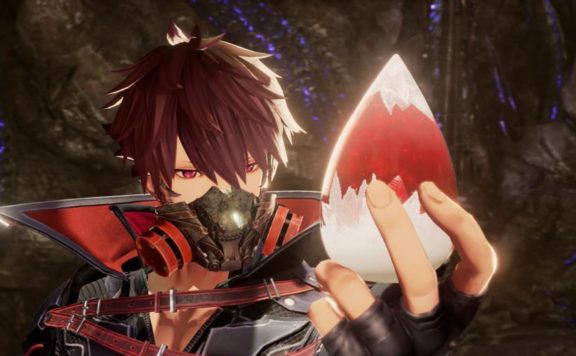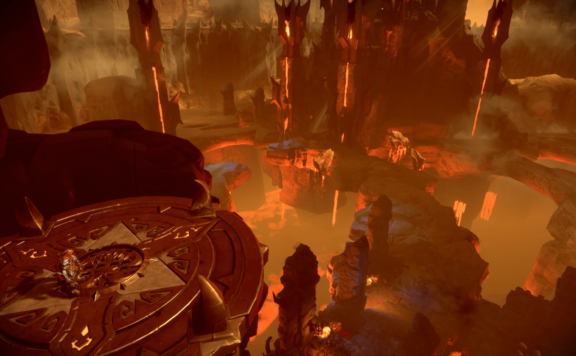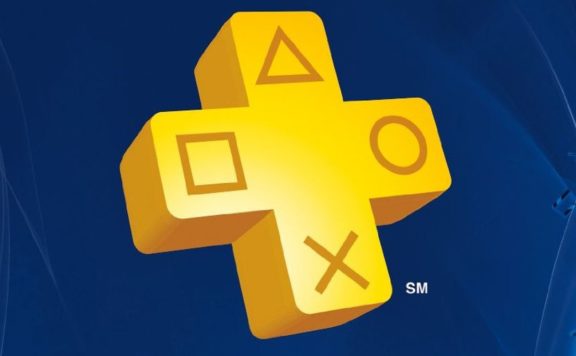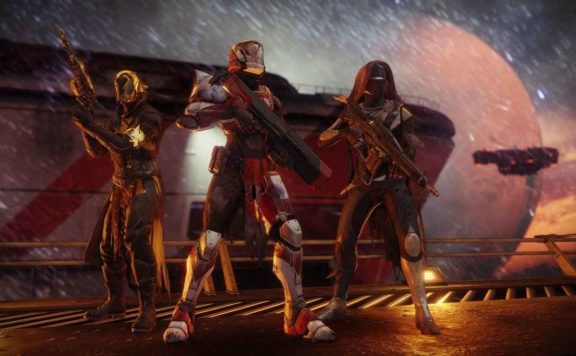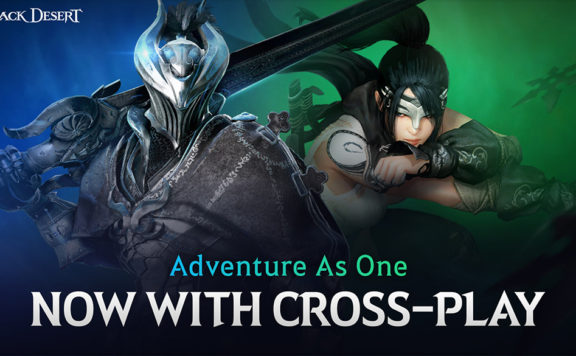Mortal Kombat 11 may just be the best game NetherRealm Studios has ever made. It’s combat is tight and refined in the way only generations of iteration can achieve; but even through its brutality, it somehow manages to be accessible even for series newcomers. It’s campaign is also one of the most fun you’re likely to find in a modern fighting game. In so many ways it’s a win, which makes it’s grind that much more frustrating. This is our review of Mortal Kombat 11. Fight!
As a kid, Mortal Kombat was scandalous. Like many of you reading this, I had glorious days spent planted in front of my old CRT, Genesis controller planted in my hands, trying my best to button mash my way up a tower, wanting to win but almost wanting to lose more so I could see another glorious fatality and hoping my parent wouldn’t see what I was up to. I’m amazed the VHS wasn’t worn to ribbons the year after the movie came out.

This year, NetherRealm Studios has refreshed the venerable franchise with its third entry since the reboot of Mortal Kombat 9 in 2011. It’s not a stretch to say that this is the high water mark for NetherRealm Studios in this new generation of MK games. The combat system is deep yet accessible with a greater-than-ever emphasis on strategy. Gone are sprints across the map and bunny hop tactics. Instead, maps are smaller, jumping more limited. The meter system has been simplified with breakers and tactics requiring one or both of your quickly regenerating meters.
I’m no expert player, but MK11 challenged me to improve and quickly. Starting the campaign on normal, it didn’t take long before I started getting KO’d, even after completing the basic tutorial. Block damage has been increased, so playing too defensively still nets you a lose. You’re pushed to learn and weave together combos and react to what’s actually happening instead of trying to cheese the system. Given the series’ long history of memorizing complex button sequences, it could be intimidating but the game goes farther than any other fighting game I’ve played to make itself accessible.
A detailed tutorial system is built into the game, teaching you first the basics – front punch, back punch, using the environment, etc – right down do advanced tactics. You can program enemies and set yourself up routines to build up your fluency with fatalities and brutalities. It’s a training mechanism to prepare you for the towers and competitive online play.
MK11 also introduces the Final Blow system, which is a literal game changer for newcomers. When a combatant gets to 30% health, they can now trigger a powerful attack simply by holding both trigger buttons. Think of this like a mid-match brutality, usually wiping out 30% or more of your enemy’s health. You can go from a loss to a win in a single moment, which is great when you’re under the gun but can also be frustrating when you’re on the receiving end.

As you’re learning, you’re also able to pin up to 10 move combinations on the screen at any time. Throughout the campaign, I was able to use this to master kombos much more efficiently than glancing down at a printed off move list.
Taken on their own, these systems could seems a bit hand-holdy. The fact of the matter, though, is that there is an incredible amount of depth in the game’s combat system. A player who takes the time to memorize these kombos and to develop the muscle memory on when to fire off his moves will wipe the floor with a casual player any day of the week. They simply provide a better onramp for players who may be coming to the series for the first time.
New to the series is the new character customization system. As you complete the campaign and conquer towers, you’ll unlock new cosmetic items for the game’s 24 characters (25 if you pre-ordered). Likewise, this is how you’ll unlock new skins, brutalities, fatalities, and augments which enhance certain pieces of equipment for your character. The problem is that this system is mired in repetition.

Towers and Augments, Grind and RNG
As you take on the game’s core, post-campaign content, the Klassic Towers and Tower of Time, you’ll face the usual progressive roster of fighters. These towers often modify fights, adding unique challenges. The problem is that there’s no real innovation here which really hampers the excitement of seeing what the day’s challenge will be. What’s more, it’s tied intrinsically to a consumable system to overcome the modifier’s challenges, each of which is earned from playing other game modes. It’s as clear a game loop as any but places you on a wheel that’s just too obvious. When you win, your rewards are random, so there’s little way to predict whether the effort will even be worth the time to get there.
This is even worse when it comes to augments. These pieces of gear change each character’s abilities and have their own upgrade path but actually doing so is far too random and grindy to be fun. Leveling up gear unlocks augment slots of five different types. Since you can’t target specific types of augments, you’re already rolling the dice, but the augments are also character and item specific. So, to enhance that piece of gear, you’re stuck grinding hoping to get the right augment for the right character for the right piece of gear. If that weren’t bad enough, you’ll need to pay Koins – another resource you’ll grind for – to unseat these augments if you want to use them in a different piece of gear.

In multiplayer, augments do not apply. Instead, you can choose one of two “variations” on the character.
Which brings me to my real concern, which really caused me worry when exploring the Krypt. In Mortal Kombat 11, the “Krypt” is the entirety of Shang Tsung’s island. Very cool on the surface and, honestly, it is very cool to explore. But its only reason for existing is to house loot boxes. Literally. Scattered everywhere are boxes from the ornate to the mundane which cost random amounts to open and offer random rewards inside. Again, you’ll gain augments and the like, and even get some Koin back, but ultimately it’s a place to bankrupt yourself on rolls of the dice. You’ll go through Koin far, far faster than you can earn it in-game.


I’d like to be definitive on what this means but I can’t. During the review period, there was nothing in the store to see exactly how the game will be monetized. I would wager that Koin will be in there. I hope I’m wrong but the combination of the Krypt and Towers and EQ progression left me with the distinct impression that NetherRealm will offer ways to buy your way past the grind. We’ve seen it countless times before and the path ahead seems clear based on the review period. We’ll see what the live game brings.
Important to note is that augments do not apply to competitive multiplayer. Instead, you’ll be able to choose one of two variations on how that character plays. This ensures a balanced playing field.
Mortal Kombat the Movie, 2019 Edition
For all that speculation, one thing the game nails is the story. In MK10, defeating Shinnok cost the heroes of Earthrealm dearly. Liu Kang and Kitana are killed and raised as leaders of Shinnok’s NetherRealm army. Raiden has become a tyrant, corrupted by Shinnok’s dark amulet. The flow of time has been irrevocably shattered.
In MK11, a new big bad enters the scene with Kronika. Master of Time, and mother of the now headless Shinnok, Kronika sets out to restore the timeline bringing heroes and villains past and present into the same timeline. It’s a great setup to see characters confront their past and future selves and sets the stage for some hilarious and dramatic setpieces. Old Johnny Cage and Young Johnny Cage exchanging nut punches. Young, heroic Jax versus the shattered man he’d become. Living Liu Kang versus dead.

It’s as big and bombastic as you would expect and filled with more cheese than a ham sandwich. At one point, Cassie Cage is shot with a minigun and bleeding out. One fight later, she’s up and talking like nothing ever happened. It’s equal parts action movie, horror movie, and cartoon. Mortal Kombat games ask you to stretch your disbelief to extraordinary levels but if you do, if you accept that everything is over the top, it’s an incredibly good time.
What’s amazing is that, despite just how incredibly outlandish everything is, you actually begin to care about these characters. Across the game’s eight hour campaign, I found myself rooting for the Earthrealmers. These same characters I’ve spent the last two decades rooting for – Mortal Kombat 11 sends them on a grand, apocalyptic adventure and it’s an uproariously good time.
Conclusion
Mortal Kombat 11 is a fantastic game. There’s no doubt about that. It’s polished, refined, tight, and incredibly brutal. It’s a game you can approach as a newcomer and still have fun with but if you’re the kind of player who wants to sink in and become a master, there’s a depth here that will keep you coming back for months and months to come. There’s also clearly some issues with the game’s progression systems and a worrying design that seems directly targeted at buying your way past the grind. We’ll have to see how that shakes out in the live game but for now, it’s worth bearing in mind before buying in for the full day-one price.
That said, if you don’t mind that grind or potential purchase toward micro transactions, Mortal Kombat 11 may just be the best fighting game to come out in years.

